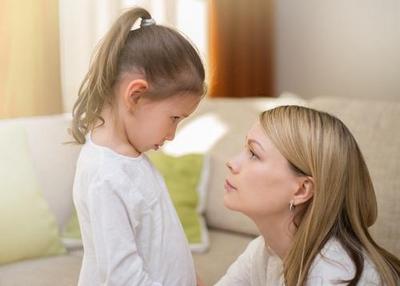Free Initial Consultations
 630-580-6373
630-580-6373With offices in Naperville, Joliet, Wheaton, Plainfield & Chicago
 While many studies have indicated that children can recover from the emotional turmoil of a divorce (and may, in some situations, fare better in divorce than if their parents stayed together), they are still vulnerable and innocent parties who can be significantly and negatively impacted by the process. As such, parents are encouraged to make every reasonable effort to mitigate the risk of divorce-related maladjustment in their child. One of the more effective ways to do this is through communication - and not just about the divorce itself, but also the feelings that children are likely to experience as they adjust to the changes of their new life.
While many studies have indicated that children can recover from the emotional turmoil of a divorce (and may, in some situations, fare better in divorce than if their parents stayed together), they are still vulnerable and innocent parties who can be significantly and negatively impacted by the process. As such, parents are encouraged to make every reasonable effort to mitigate the risk of divorce-related maladjustment in their child. One of the more effective ways to do this is through communication - and not just about the divorce itself, but also the feelings that children are likely to experience as they adjust to the changes of their new life.
Divorcing parents were once led to believe that children were “resilient” enough to withstand the emotional turmoil of divorce without any long-term, negative effects, but more recent data disproves this outdated theory. Children can experience maladjustment issues from a divorce, even if they do not display any immediate signs or symptoms. That is because, like adults, children can experience the complexity of grief, loss, pain, stress, and even self-blame during the divorce process. If not addressed appropriately, those feelings can simmer below the surface, only to emerge at a later date - and often at a time when the parent least expects it.
Children, though fairly resilient, need to be protected from the potential ill effects of divorce - particularly those that can negatively impact their mental or emotional well-being. Ensuring that the interactions between you and your spouse (including those that take place over the phone or through email) are amicable is a great way to start, but it may still be necessary to use other mitigating tactics as well. For example, you may want to attend a parenting course that is specifically designed for families impacted by divorce, or you may opt to enroll your child in a peer support group or therapy to ensure they have a private space to talk about their feelings. Just remember, even if you seek outside help for your child, it is still recommended that you address grief and pain with your child, directly, as they may need your support while trying to cope.
Grief, pain, anxiety, and stress - all of which may be felt by children during the divorce process - are complex emotions that can present differently in each person. One child may withdraw from their school and social activities, while another may start getting into trouble after picking up some new (and undesirable) friends. Age, maturity, and developmental stage can also impact how a child exhibits pain or grief. For example, a toddler may become more whiny and clingy but a teen may avoid their parents (along with friends and other family members).
So how do you know when to speak to your child about pain and grief? More importantly, how can you ensure that you are able to effectively communicate with your child during the divorce process. What if they refuse to talk or withdraw when you try to discuss the divorce? Consider the following child communication tips:
At Davi Law Group, LLC, we understand the importance of protecting the best interests of children, which is why our DuPage County divorce attorneys aggressively advocate for them in local family law cases. Seasoned and experienced, we can work with you to improve the overall outcome for your child during an Illinois divorce. Schedule your personalized consultation to get started. Call 630-657-5052 today.
Source:
https://www.wdbj7.com/content/news/Divorce-can-be-more-emotionally-difficult-for-children-than-it-is-for-parents-500390301.html
